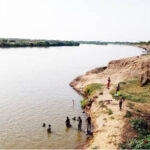There are instances where you just have to blow your trumpet, especially in a setting where you have antagonistic people who think the only way to look powerful is by belittling others. In our economic history, it is taken that the country’s revenue depends on the oil sector, and every other state is viewed as a free-rider. However, emerging voices from relevant states are starting to demand a re-evaluation of this story, and none is more vocal than Niger State Governor Mohammed Umaru Bago. His assertion: Niger State deserves recognition as a power-producing state.
So, it is good to see the governor seeking public acknowledgement of the contribution of his state to the power sector. The size of Niger State, 76,363 square kilometres, has been used as the common denominator by leading politicians to justify how the northern states are heavily dependent on oil revenues instead of engaging in agricultural activities. Let’s not forget that having a hydropower plant impacts agricultural activities. The creation of dams for a hydropower plant affects the arable land and changes the local ecosystems, reducing the land available for farming.
Comparatively, the South West is 79,666 sq km., the South South is 84,547 sq km, and the South East is 29,525 sq km. So, Niger stands among geo-political zones. However, we all refuse to ask why other geo-political zones like the South South states and the south-eastern states are unable to engage in agricultural activities. We could find the reasons for their inactivity, and rightly so, but we find it difficult to acknowledge the tangible contributions of the states that do so.
Let’s remember that Niger State has been producing the electricity that sprung our manufacturing sector in the 70s in places like Lagos, Onitsha, Aba and Kano. Specifically, it is Borgu Local Government that should get the credit—the home of Kainji Dam hydropower, with an area of 11,267 square kilometres, bigger than Imo and Anambra states put together. Yes, like Bago, I find it disappointing that Niger State is not credited for its contributions to Nigeria’s electricity generation, despite the substantial output from these hydro stations.
- Nigeria eyes $50bn IDB’s African investment
- Senate mulls NIPOST privatisation, queries N18bn personnel cost
At present, Niger State hosts three hydroelectric power stations: Kainji, Jebba, and Shiroro, with respective capacities of 760 MW, 578 MW, and 600 MW. These stations are critical to Nigeria’s power infrastructure, contributing significantly to the national grid. Hydropower is the second-largest source of the country’s electricity, following thermal generation from gas. In 2022, when Nigeria achieved a record power generation of 5,043.4 MW, hydroelectric power accounted for about 27 per cent of the country’s electricity generation.
So, Bago’s demand for recognition is more than just the desire for acknowledgement. It is a call for economic justice and a strategic imperative for Nigeria’s energy policy. Recognition as a power-producing state would likely involve a reconfiguration of fiscal benefits, compensations for and a more prominent role in the planning and expansion of Nigeria’s power infrastructure. This reconfiguration will open further investments in the state’s power generation capacity, ensuring greater stability and efficiency in the national grid.
The current average operational capacity of Nigeria hovers around 4,500 MW, which is inadequate for a country with a growing population and an economy poised for exponential growth. Niger State’s contribution of nearly 2,000 MW from hydroelectric power is therefore not just significant but vital. It shows the state’s potential as a foundation for Nigeria’s energy future, particularly as the country seeks to diversify its energy sources and reduce carbon emissions in line with global environmental targets.
As Africa’s largest economy, the growth trajectory of Nigeria is tied to its ability to provide stable and sufficient power to its industries and residents. The underrepresentation of hydropower’s contributions, especially from states like Niger and Zamfara, limits the conversation on how to bridge the current power deficit effectively. Refusing to address the contribution will stifle innovation and investments in renewable energy sources like solar and wind energy, which are globally acknowledged as key to sustainable development.
Let’s not forget that the logic for Bago’s demand for acknowledgement is connected to fairness and the practical economics of energy production. Recognising Niger State as a power-producing state would not only correct a historical oversight but also lead to increasing fiscal investment in hydropower in other parts of the country, potentially spurring similar recognitions for other states contributing to Nigeria’s energy portfolio like in the solar power in Delta state, and the hydropower plants in Gombe, Kaduna, Kano, Taraba, and Zamfara. So, I expect these governors to join the discussion soon enough.
Some may see the debate as a case of regional interests, but on the contrary, it is beyond that. Bago’s advocacy for Niger State’s recognition is an invitation to recalibrate national policies towards a more inclusive and representative energy sector. The policies that will work to generate growth in Niger State’s hydropower are the same as those that will generate growth across the whole power sector. So, acknowledging the state’s hydropower contributions is not just a matter of compliments but a strategic move that promises to bolster Nigeria’s power stability, economic equity, and sustainability efforts.



